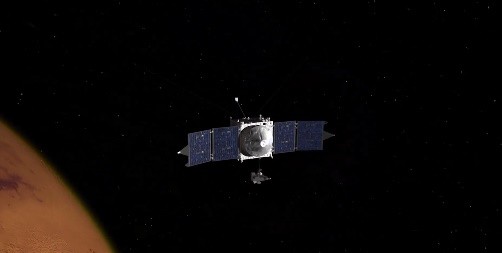



Tamil Nadu's Space Industrial Policy leverages its ISRO facilities, coastal advantages, and robust vendor ecosystem to foster a thriving space startup ecosystem. With ₹10,000 crore investment, incentives like payroll subsidies and Space Bays aim to boost employment, innovation, and economic growth in electronics, precision engineering, and advanced materials sectors.

Copyright infringement not intended
Picture Courtesy: THE HINDU
Tamil Nadu became the third Indian state (after Karnataka and Gujarat) to adopt a comprehensive Space Industrial Policy.
ISRO Propulsion Complex (IRPC)
Location: Mahendragiri, Tirunelveli District
Functions:
Second Spaceport (Under Development)
Location: Kulasekarapattinam, Thoothukudi
Significance:
Space Technology Incubation Centre
Location: National Institute of Technology (NIT) Tiruchi
Role:
Tamil Nadu is home to innovative space startups working across various specialized domains: Launch Vehicles, Reusable Launch Vehicles, In-Space Refuelling, In-Space Manufacturing, Multi-Payload Data Fusion, Satellite Services
The startup ecosystem represents modern technologies including advanced propulsion systems, space manufacturing capabilities, and sophisticated data analytics platforms for satellite-derived information.
IN-SPACe Recommendation => The Indian National Space Promotion and Authorisation Centre suggested Tamil Nadu develop a state-specific space policy to leverage its existing infrastructure and capabilities.
Existing A&D Policy (2022) => Tamil Nadu's Aerospace and Defence Industrial Policy identified space as a priority sector, laying groundwork for focused development.
Strong Vendor Ecosystem => Over 250 vendors already serve ISRO requirements, creating a robust supply chain foundation for space industry growth.
Tamil Nadu Industrial Development Corporation (TIDCO)-IN-SPACe MoU => Strategic partnership to enable startups and companies in manufacturing, R&D, and space-grade component development.
The policy aims to capitalize on Tamil Nadu's existing advantages in electronics manufacturing, precision engineering, and related sectors while integrating space technologies into governance for improved citizen services.
Payroll Subsidies => Companies involved in R&D or establishing global capability centers in the space sector will receive government payroll subsidies to encourage high-skill employment.
Space Bays Designation => Select regions will be notified as "Space Bays" offering structured incentive packages for investments below ₹300 crore, creating focused industrial clusters.
Industrial Housing Incentive => 10% subsidy on residential facility development costs within industrial parks, capped at ₹10 crore over 10 years to support workforce housing.
Green Initiative Support => 25% subsidy on capital costs for green and sustainable initiatives, with a ceiling of ₹5 crore to promote environmentally responsible development.
Geographic Benefits
Industrial Ecosystem
Educational Infrastructure
The ₹10,000 crore investment target is expected to create ripple effects across electronics, precision manufacturing, IT services, and advanced materials sectors, potentially generating additional economic activity worth 2-3 times the direct investment.
Must Read Articles:
Source:
|
PRACTICE QUESTION Q. "Investment in the space economy is not just about scientific curiosity; it is an investment in Humanity future." Critically analyze. 150 words |






© 2026 iasgyan. All right reserved